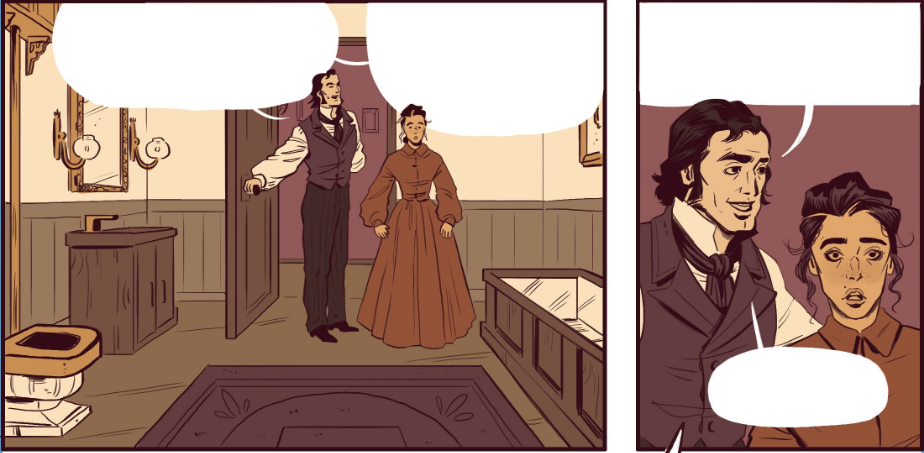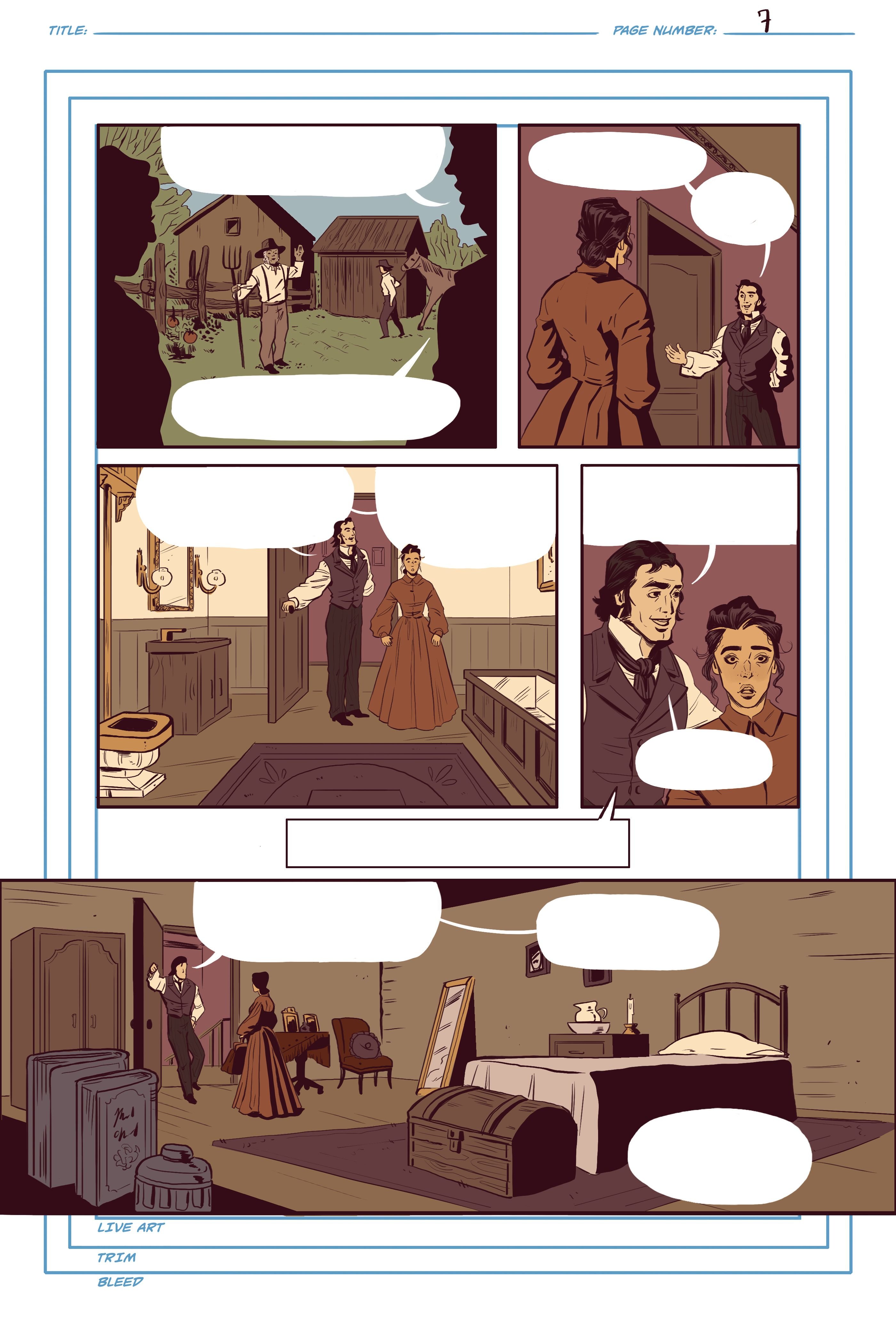
As Imelda gets a grand tour of Everett's home, she is introduced to something you and I might take for granted: indoor plumbing.
I've had to do a lot of research for this comic to make sure things are as historically accurate as I can get without driving myself insane. I'm only one girl with so much time and sometimes for the sake of storytelling details get a little fudged but for the most part I try my best. Panel 3 lead me to a lot of research to figure out exactly when the indoor bathroom was invented and when it started becoming commonplace in households (rich ones that is).
A Brief and Not Very Comprehensive History of the Crapper
So the first john was created by a John Harrington in 1596 and was generously donated to an impoverished family in need... just kidding! Of course, it was gifted to royalty, none other than Queen Elizabeth the First. The Queen was thrilled at first but ultimately rarely used it because the loud thundering noises the flush made scared her.
It would take almost 200 years for the first patent for a flushing water closet, a device similar to Harrington's, to come about by a Scottish watchmaker and inventor, Alex Cummings, in 1775. This design was the forerunner of modern toilets but alas, it would still take quite some time for the (indoor) loo to become a staple in every household.
Skip forward half a century to 1829 and the Tremont Hotel in Boston had a whopping 8 toilets installed making it the first hotel to offer indoor plumbing and running water for its guests. The White House thought the Tremont Hotel was on to something so four years later in 1833 President Andrew Jackson was able to enjoy indoor plumbing.
It wasn't until 1856 that the US had fully functioning plumbing systems integrated and the first city to enjoy this development was Chicago. With modern sewage in place, toilets and bathtubs were being built into new homes. But hold off the celebration, because indoor toilets were considered a luxury in the 19th century. While I couldn't find an exact date, most sources said that it was some time at the beginning of the 20th century that they became commonplace.
So luckily for Imelda, now newly employed by the wealthy Everett [NeedsALastName], she gets to enjoy that luxury. Having come from the tenements in New York City, this is a feature she is definitely new to warranting her surprised reaction.

Hope you enjoyed another edition of "Theresa Poorly Explains Some History" as well as page 7 of this comic. Only one more colored page to reveal so stay tuned!
[insert comic name here] is a gothic style story set in the 19th century about an immigrant houseworker who uses the spiritualist movement to rebel against the societal pressures of the time. If you would like to read the previous updates about this story, you can find them in the links below:
Update 1: Progress
Update 2: Perspective is The Worst
Update 3: Art Hacks
Update 4: Establishing Shots
Update 5: Changes
Update 6: Loving/Hating Your Work
Update 7: New Techniques
Update 8: Speed Draw
Update 9: Quick Update
Update 10: In Media Res
Update 11: Exposition Time
Update 12: Life as a 19th Century Maid
Thanks for Reading!
If you'd like to keep up with more of my work you can check me out at the following:
Instagram: @la.fumettista
Tumblr: http://la-fumettista.tumblr.com/tagged/art
Twitter: @TheresaChiechi
Website: https://www.theresachiechi.com/
